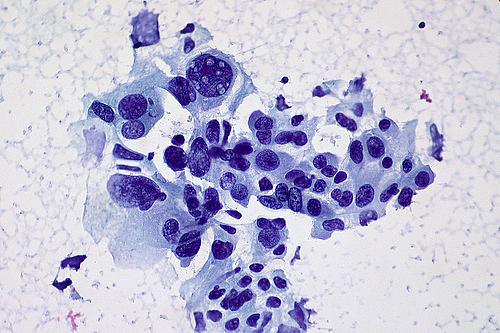Obamacare and Cancer – top doctor sees no maligancy

With the Obamacare rhetoric flying, the president of the nation’s leading cancer doctors’ group says worried cancer patients may be unnecessarily concerned. He has come to the view that Obamacare will be a boon for cancer patients and become a high-profile advocate for the controversial new national health care policy.
“I think what’s true for your average cancer patient is that nothing changes,” Dr. Clifford Hudis, president of American Society of Clinical Oncology (ASCO), told me recently.
Hudis, who treats patients and is chief of Memorial Sloan-Kettering’s breast cancer program in New York, says some of his elderly patients who are covered by Medicare have confided dark fears to him.
“I’ve had my patients in my office tell me they’re scared of the Affordable Care Act because they’re so worried the government is going to get involved in their Medicare,” he said. “That misunderstanding is unfortunate.
“I’m going to see my patients. They’re going to show up in my office,” he says. “Everyone with insurance is going to see a doctor. More people are going to have insurance,” Hudis says.
“The human part of me, the part that treats sick people … has a hard time getting concerned about an approach that broadens access.”
Hudis makes clear that he is speaking for himself and not the 30,000 doctors who are members of the medical society, ASCO (many of whom, no doubt, have their own views).
He believes the Affordable Care Act, widely referred to as Obamacare, will not slow the development of weapons to fight cancer, nor hamper specialists combatting the nation’s No. 2 killer.
ASCO’s stated mission is to deliver the highest quality cancer care to everyone. “That means appropriate care. I’m not saying luxury health care,” Hudis says.
“We have to step back and say, ‘What is the harm in the current situation we’re in’?” he asks. “The harm in the current situation is tremendous.”
Hudis says the current system can be cruel to patients switching insurance carriers whose new insurance excludes the disease.
“Exclusion for prior diagnosis hit home for me in the last few weeks when I saw a young woman move from one good job to another good job in a different state and then develop a recurrence of breast cancer,” he said, adding that her new insurance carrier denied her coverage for a pre-existing disease. Starting in 2014, insurance companies will no longer be able to exclude pre-existing conditions from coverage.
“I really thought these stories were apocryphal. But I could not arrange a biopsy of a suspicious metastatic lesion because (the condition) was excluded” from her new insurance coverage, he said.
I read a thought-provoking (and scary) think-piece in a recent issue of Forbes by commentator Scott Gottlieb that expressed a sharply contrasting viewpoint.
Gottlieb says researchers are at a turning point in battling cancer and the ACA could put progress at risk. He sees Obamacare blocking the ability of patients to see specialists and treatment costs rising because insurers would be barred from using tools they’ve used in the past to keep costs down. In addition, Gottlieb, who has held several positions at FDA and Medicare, says the new health law will make it harder to get the newest cancer drugs. Gottleib did not agree to my requests for an interview.
Hudis says he doesn’t believe any of those things Gottleib worries about will happen.
Hudis says no society should allow insurance to be set up in a way that allows an insurer to refuse care based upon a pre-existing condition. And he credits Obamacare for eliminating exclusions based on a person’s prior medical history.
“We’re all in this together, that’s the point. This notion that only one group of people, even if it’s a large group, should be insured flies in the face of the very concept of insurance, which is to protect all of society, through share risk and burden.”
Image by euthman via Flickr
This post originally ran in the "Cancer in Context" blog and has been used with permission from Thompson Reuters.

